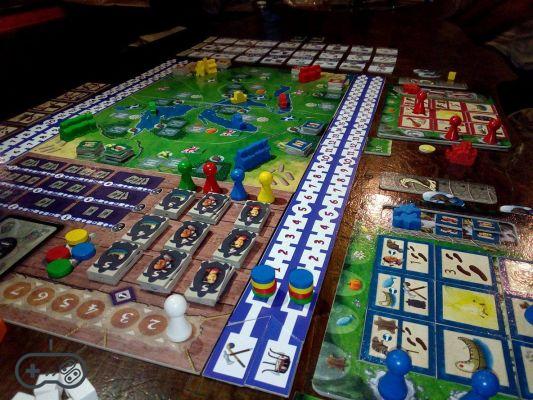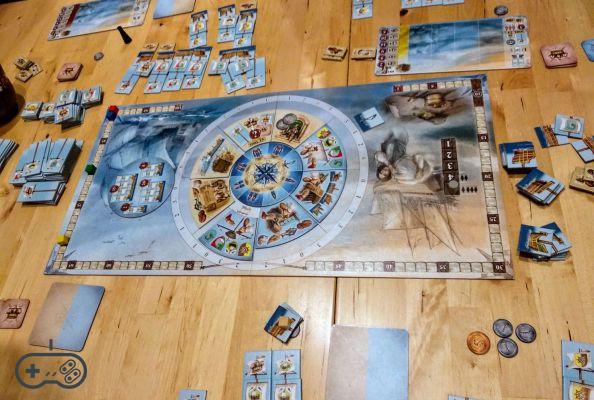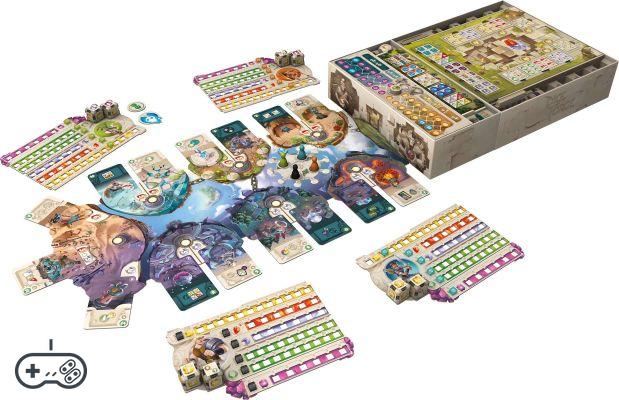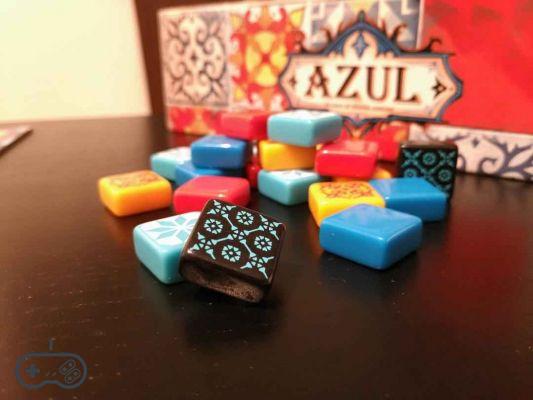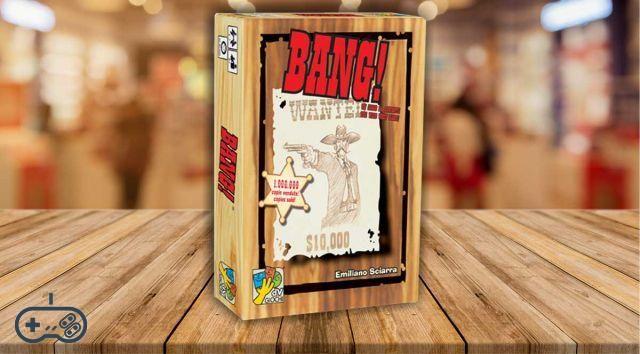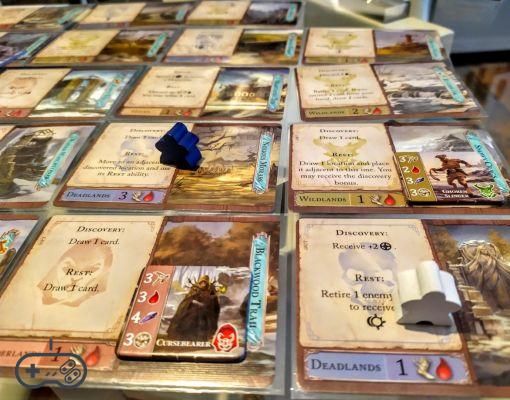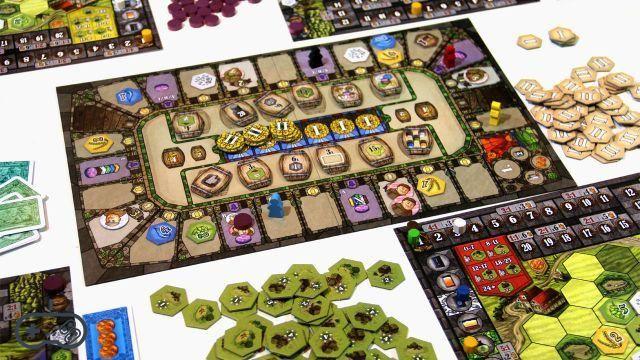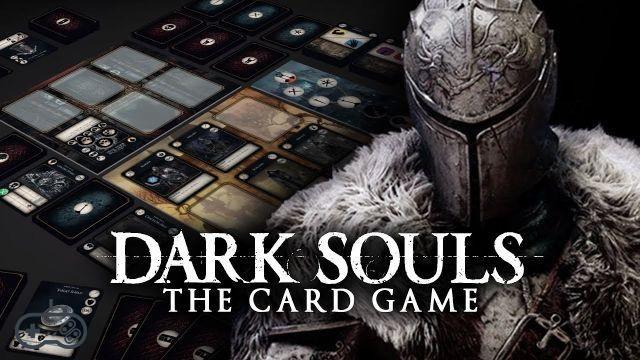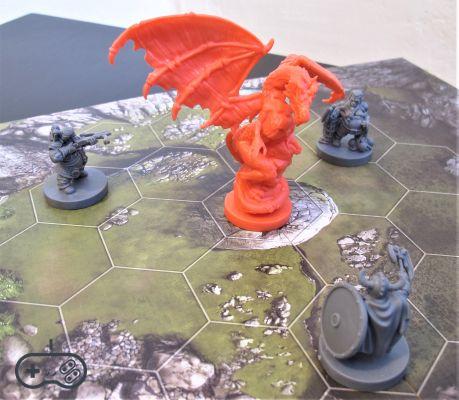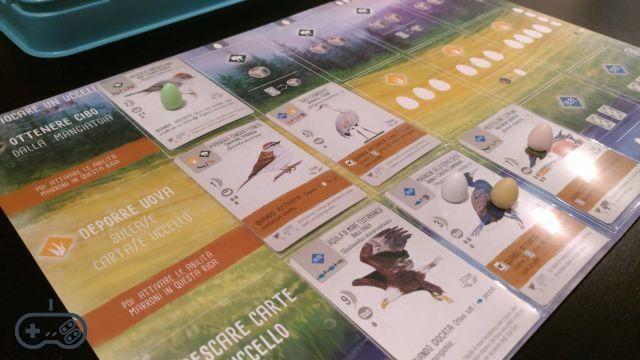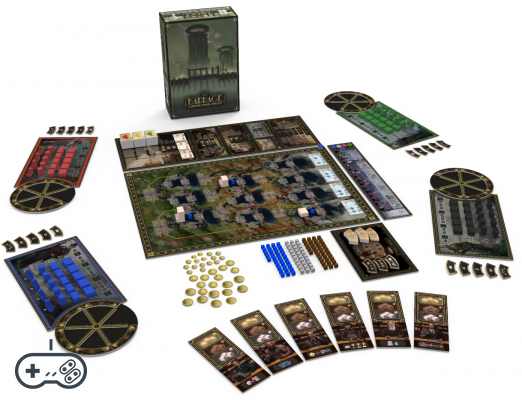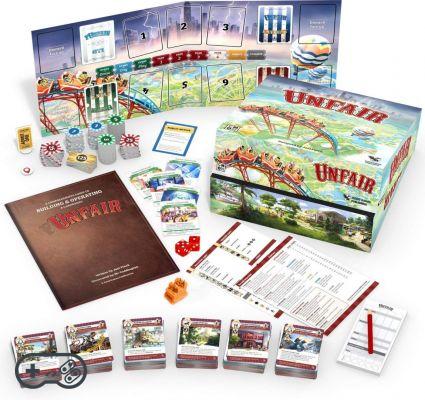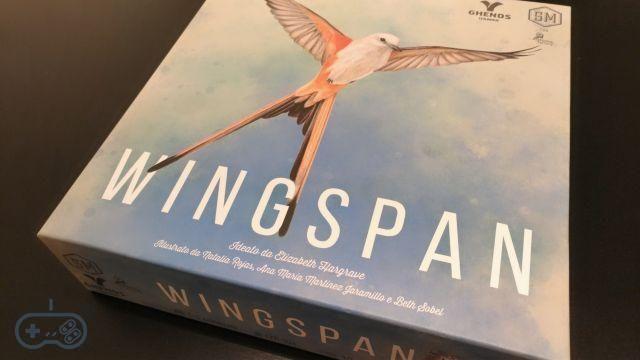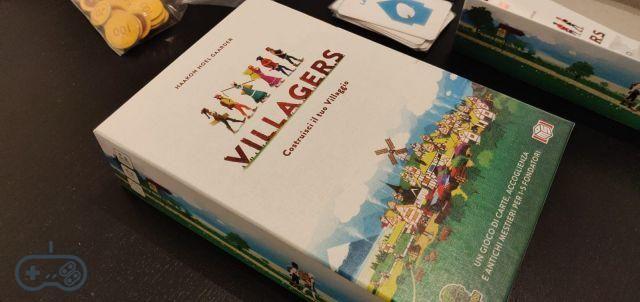
The fruitful campaign ended in 2018 Kickstarter di Villagers, game of Haakon Hoel Gaarder, which he collected 482.171 pounds. For those who have not heard of it, it is a simple one family game which exploits mechanics of draft and where players compete to wisely build the most prosperous village. This year MS Editions located the title originally published by Sinister Fish Games, thus making it available. We have had the opportunity to play numerous games, so here is an in-depth look at Villagers.
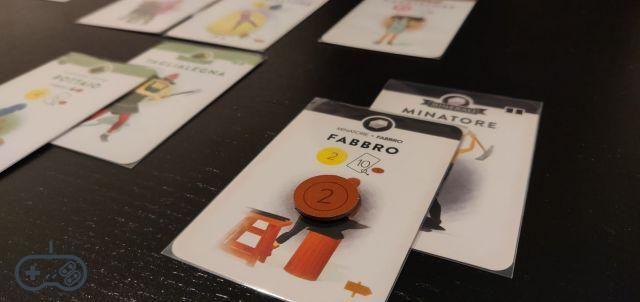
Villagers: build your village (... and make more money than your opponents)
As anticipated above, in Villagers we will have to build our village, with the aim of making more money (in the end they will be the real points) of the other players. To do this we will have a great variety of villagers to choose from (the "villagers" in fact): these are cards that will be chained together based on the type and which will basically allow you to make money, to be able to recruit more villagers, to be able to place more. Villagers it's a game for 1-5 players, with an estimated duration of 30 60-minute.
Components, materials and graphics
The game materials, a deck of cards and numerous cardboard coins, are good and functional. In particular, the cardboard of the dies is thick and the coins are many. The graphics are clear and understandable and the illustrations have a very particular style that is pleasant to see (by the same author of the game, Gaarder). For more details on the contents of the box you can take a look at ours unboxing video available here.
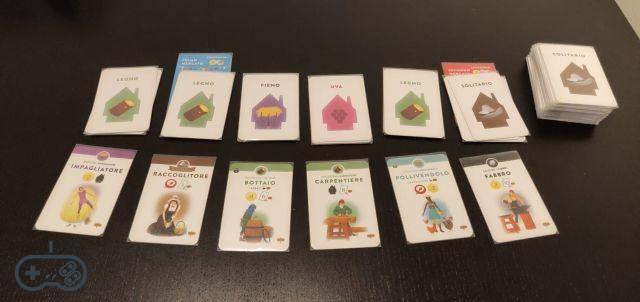
The game mechanics
Let's now take a brief look at the rules and game mechanics (for more information, as always, refer to the complete regulation).
As said above, Villagers is based on the draft of the peasant cards and their construction in their own play area. The cards have a type, a name, and symbols that indicate the skills, the gold they yield, the number of other villagers they "unlock". The aim of the game is to accumulate more coins than the opponents.
At the beginning, each player starts with 5 cards in hand, 8 coins, a village square card and a “founders” card in front of their play area. 6 stacks of face down cards are also placed, each containing 2 cards per number of players, plus another 6 face up cards that will constitute the road.
The game is divided into rounds, in turn divided into 2 distinct phases: the acquisition phase and construction phase.
- during the acquisition phase, in turn, each player chooses and places two cards in their village square (each turn, one at a time), plus one for each food symbol present on the villagers discovered in their play area, up to a maximum of five; the cards are chosen from the "street", or you can blindly draw the first card from any of the face down piles (the back still indicates the type). Whenever you take a villager off the road, the empty space is filled with a new card taken from the top of the leftmost face down pile, so that there are always 6 visible cards available; as a result, the covered batteries will gradually run out.
- during the construction phase, each player chooses two cards from their hand plus one for each building symbol present above the villagers face up in their play area, up to a maximum of five and builds them, ie places them in their village. The villagers will be placed consistently with its own production chain: each villager, in fact, shows above the name the concatenation of cards in which it is inserted and it will be necessary to have the previous villagers in order to play it.
Under the second and sixth pile of hole cards must be placed the so-called market cards, which determine the two stages of scoring of the game: when the first market card is revealed, each player gets as many coins as indicated on the gold coin symbols above their villagers at the top of the production chains; when the second market card is revealed the game ends, you will receive coins again for the gold coin symbols present on your villagers and also for the silver coin symbols.
At this point the winner is determined by counting the total coins: whoever has the most wins.
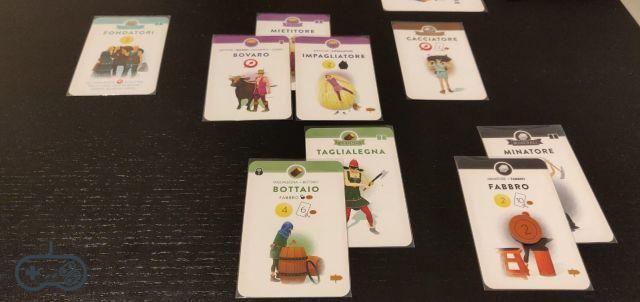
Considerations
Villagers is a very simple and cute family game. Being able to grab the villagers necessary to complete the chains and build them gives a lot of satisfaction, as well as studying the best combos to make money; the games are so fast that they leave the desire to play another one. The mechanics are so simple that they can involve even those who don't have much experience in board games, but it's a game that, like elephants, it can satisfy even the most demanding palates. With few materials, Villagers manages to give a fairly varied play experience from game to game: the combinations of cards to get to victory are many, also because the deck is really consistent. The alea is partly present, especially if you play in 2 and therefore you see few cards (so maybe it will never be possible to complete certain production chains simply because the coveted villager does not come out), but to be a family game and for the duration is absolutely acceptable.
A positive note is also the presence of a solo mode, perhaps a little "less filler" and more challenging than playing against real opponents. In fact, from time to time it will be necessary to choose both a card for himself and a card for the bot, which can indiscriminately build everything without limits given by the concatenations: consequently one must try to leave even "bad" cards on the road in order not to be forced giving the bot too many points or fruitful combos.
In some cards there is a translation error, but nothing that compromises the playability.
Definitely, Villagers is a great introductory and family game, perfect for beginners and a good filler for more experienced players.




